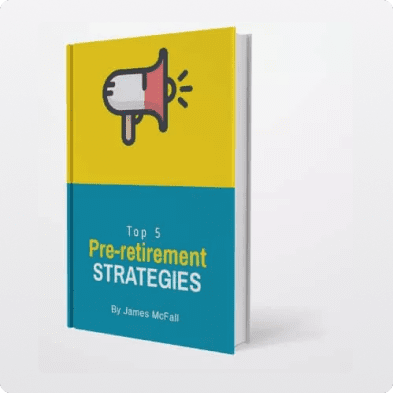Improving After Tax Income for Doctors
Legally minimising tax is a cornerstone of expert financial planning, and tax deductions for doctors are vitally important. This is because your income is likely to be higher than most Australian’s. Also, you are likely more limited in how you can structure your income.
To help you determine if something is deductible or not, there is a general rule of thumb you can apply. If the expenses you incur are for income producing purposes, then they are generally tax deductible.
Of course, applying this basic rule of thumb is just a starting point. In this blog we dig into tax deductions for doctors specifically, to be worked through with your Accountant.
Work Related Expenses That Doctors May Claim as a Tax Deduction
As a doctor there are likely lots of work-related expenses that could be claimed as a tax deduction on your tax return. These include:
- Professional Development: when you attend workshops, conferences, and seminars to learn more about medicine. These can usually be deducted. It’s a way to encourage you to keep improving your skills and stay up to date with new developments.
- Medical Equipment: The tools you use for patient care, like stethoscopes and diagnostic devices, are usually deductible. This acknowledges that you need these things to do your job well.
- Uniforms and Protective Gear: The clothes you wear to keep things clean and safe, like uniforms and lab coats, are usually deductible. It’s recognised that these are necessary for your work.
- Membership Fees and Subscriptions: If you’re part of medical associations or subscribe to medical journals, the fees you pay can usually be deducted. This supports your professional connections and ongoing learning.
These deductions are designed to reflect the specific needs of medical professionals like you. Making it a bit easier on your wallet while you provide crucial care.
Educational Professional Development Expenses
Medicine is ever changing, and the tax office recognise that continuous learning is essential for doctors to stay up to date on the latest developments. As part of your continuing professional development, you must do 50 CPD hours annually as a minimum. This is unless you are specifically exempt. So, there are several types of learning tax deductions for doctors:
- Educational Materials: This includes important things for your learning, like books, notes, and research articles. If you need them for your job, their cost can be counted as a deduction.
- Online Courses: Taking classes on the internet to improve your medical skills can also usually be considered as a deduction.
- Seminars and Workshops: Going to events where you learn more about medicine, like meetings and training sessions, can be part of your deductions. These gatherings are an important way to get more knowledge.

Home Office Tax Deductions
If you need to work from home then the costs associated to you doing so are typically tax deductible for doctors.
- Utilities and Rent: The things that make your home office work, like electricity and the cost of renting your place, can be part of your deductions. This is because they’re helping you do your medical work from home. Importantly you may only claim the % that relates to work purpose. So, for example, if you make work related calls that cut into your phone plan, you can keep a log of your call history to then calculate how many of your calls in the financial year were work related. You can then calculate the percentage of calls which are work related and apply that to your phone plan cap, to then arrive at the relevant tax deduction.
- Office Equipment: The tools you use for your remote medical job, like computers, furniture, and printers, can also be counted as deductions. They’re part of making your home office work well for your medical practice.
Vehicle and Travel Expenses
As medical professionals, you often need to move around to give care to patients. This opens the door to deductions like:
- Car Usage: If you use your car for work, like driving to patients or conferences, you can get deductions. You can calculate this by how much you drive for work or by keeping a detailed record of your trips.
- Logbook: To effectively calculate car expenses, you can use a logbook to calculate the odometer reading. As well as other costs which may be eligible for deduction. These include running costs, fuel and oil expenses, and may be eligible for you to then use a percentage of as a work-related deduction.
- Cents per Kilometre Method: To effectively calculate work related travel deductions, the total kilometres driven for work needs to be multiplied by the updated rate set by the ATO. As of the 2023-24 financial year, the rate currently sits at 85 cents per kilometre.
Income Protection and Insurance Premiums
- Income Protection: Preserving your income should be a top priority as a medical professional, given the uncertainties in your field. It is good to know that income protection insurance is tax deductible.
- Non-Claimable Deductions: Not all insurance is eligible to tax deductions. Life insurance for example is deductible to super, but not personally. Trauma insurance is also not tax deductible.
Partnering with a certified financial planner can help navigate which deductions you’re eligible for.
Investments and Other Assets
Typically, doctors and other medical professionals are high net worth individuals or on the path. This often means higher than average debt levels and investment complexity, which usually means a lot of tax deductions for doctors.
If you are accumulating investments which have passive income, like property, stocks or owning a business, then it is likely that some costs will be tax deductible. Initial costs associated with these investments or ongoing costs like interest on a loan, may be claimed against your income.
For example, if you borrowed money to buy shares which you now receive dividends from, you may be able to claim a deduction for the interest you pay. To secure peace of mind and optimise your tax structuring strategy, receiving financial advice from a medical expert advisor like Yield is recommended.

Documenting Your Deductions
One of the best pieces of advice, to maximise your tax deductions, it to keep good records. Keep records of receipts, invoices, and substantiating documents to support your claim.
Sometimes leveraging digital tools, like Xero for example, can really make tax time easier too, so enquire with your accountant about this or look online.
Connect With Yield Financial Planning Today!
Let us help you! Yield Financial Planning are specialised medical financial advisors and are dedicated to designing custom financial plans, made just for you!
Join our community of doctors and medical professionals and get a truly personalised approach. Contact us now


















